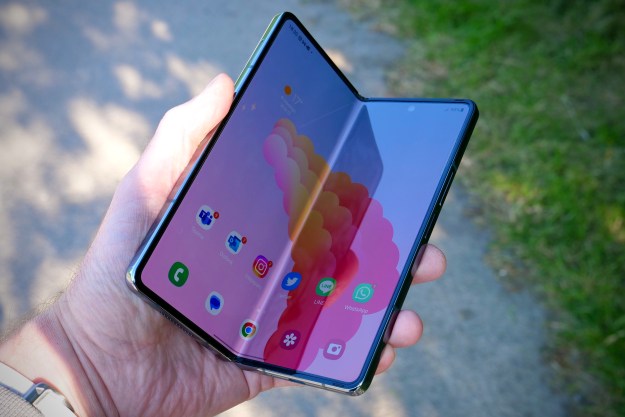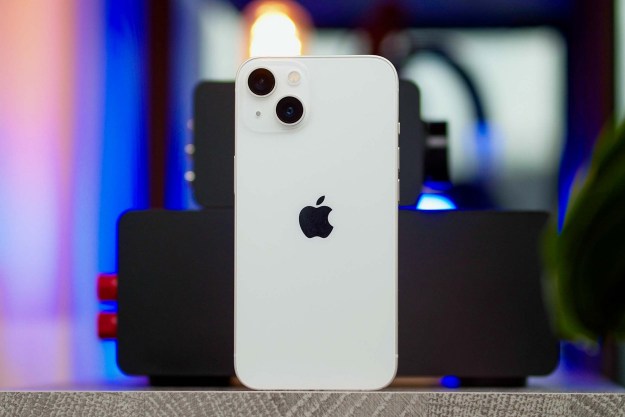 “Facebook’s mission is to make the world more open and connected,” reads the first line of Facebook’s blog post introducing Graph Search. But after Facebook blocked Wonder – the mobile App that launched the same day by Google’s Russian competitor Yandex – from accessing the social giant’s much touted one trillion data-points, that should be rewritten: “Facebook’s mission is to make the world more open and connected… so long as Facebook retains control over the information and how it can be accessed.”
“Facebook’s mission is to make the world more open and connected,” reads the first line of Facebook’s blog post introducing Graph Search. But after Facebook blocked Wonder – the mobile App that launched the same day by Google’s Russian competitor Yandex – from accessing the social giant’s much touted one trillion data-points, that should be rewritten: “Facebook’s mission is to make the world more open and connected… so long as Facebook retains control over the information and how it can be accessed.”
Timing is everything
Graph Search was launched a mere four days after news broke that Yandex had essentially built the mobile app, voice search-enabled version of Graph Search.
Graph Search is a tool to navigate the endless data-points on Facebook, including reportedly a billion people (minus all the cat and dog profile pages), 240 billion photos, and more than a trillion connections. Graph Search goes beyond letting you search for friends, and lets you search for people, photos, places and interests in a more semantic way, within a defined context.
Beta testers can now ask Facebook to find “friends who live in New York City and ski,” “books read by CEOs,” or “music my friends like.” Because of its ability to tap into preferences and essentially recommendations from friends, Graph Search could be considered a threat to not only Google – which released its Knowledge Graph last year – but also to Amazon and even Yelp. Which brings to mind the old saying: “The enemy of my enemy is my friend.”
But the traditional social-meets-search players aren’t the only ones reeling from the launch of Graph Search: Yandex’s Wonder app is being threatened. In Yandex’s words, “Wonder is an iPhone app that collects your friends’ activity from Facebook, Instagram, Foursquare, and Twitter and makes it easily accessible to you. Now you can ask questions about what places your friends visit, what music they listen to, and what news they read.” Apparently this treads too closely to what Graph Search does… because you can integrate Facebook, thus rendering the app without important social information.
Facebook has reportedly done this because of its policy stating: “You must not include data obtained from us in any search engine or directory without our written permission.” Yandex, however, argues that Wonder is not a search engine or directory, and thus should be free use Facebook’s social graph.
When I reached out to Facebook to find out why they had blocked Wonder, they pointed me to a blog post responding to the issue. The post reads in part, “Over the past few days, we’ve received questions about a few of our platform policies and want to clarify our thinking.
“For the vast majority of developers building social apps and games, keep doing what you’re doing. Our goal is to provide a platform that gives people an easy way to login to your apps, create personalized and social experiences, and easily share what they’re doing in your apps with people on Facebook…
“For a much smaller number of apps that are using Facebook to either replicate our functionality or bootstrap their growth in a way that creates little value for people on Facebook, such as not providing users an easy way to share back to Facebook, we’ve had policies against this that we are further clarifying today (see I.10).”
What about Wonder?
Founded in 1997, Yandex is the fifth largest search engine globally and Russia’s largest search engine, controlling more than 60 percent of the Russian market. Similar to Google, the Russian search giant generates the majority of its revenue through online advertising, and offers multiple products from maps and traffic information to photo hosting and email. But to put Yandex in context, its market cap is $7.59 B while Google’s market cap is $248.28 B—about 32 times as large, and Facebook’s is $67.3 B—nearly eight times as large.
Google, however, is just one of Yandex’s “Big Four” tech giant competitors; with its launch of Wonder, it is now in some ways a competitor to Facebook’s Graph Search—pulling in social data from Instagram, iTunes, Last.fm, and Facebook competitors Twitter and Foursquare. Currently, Wonder can (or rather, would be able to) provide answers to questions about places, music and news—questions like “What clubs have my friends been to in New York,” or “What electronic songs do my friends like?”. But Yandex plans to gradually expand the types of questions to which it can return answers.


During Facebook’s press event on Graph Search, Zuckerberg said Facebook didn’t have plans to integrate voice search—a feature Wonder boasts—and that it didn’t have an estimate on when its mobile version would be ready.
Yandex has responded to Facebook’s blocking of the app, saying:
The enemy of my enemy is my friend… but what happens when the enemy of my enemy is my enemy?
Many have reported that a deal is not completely off the table, as Facebook and Yandex are currently in talks. The two companies have a history: In 2010, they struck a licensing deal allowing Yandex to show public posts from Facebook Pages in its search results. But this time around, a deal seems unlikely.
From Yandex’s side, the company’s CTO told me they launched Wonder as a test to experiment with the capabilities of its tetchnology, backing away from the idea that they were looking to sell. “We launched this app to check and test our new technologies. The result of the experiment should confirm or deny some tech theories we have in mind,” Bakuniv says, adding that the company would incorporate some of Wonder’s elements into other products and services supported by Yandex based on their findings. “We don’t think selling Wonder to anyone will help us to conduct the experiment successfully,” he said.
From Facebook’s side, even if they were somehow able to buy Wonder, there would be a strong possibility that Twitter and Foursquare would pull their data from something owned by Facebook. If, as Bakuniv suggests, there isn’t likely to be a deal with Facebook, there’s a possibility for Yandex to partner with competitor Google for access to Google+ data to fill out what Wonder lost along with Facebook integration.
When I asked Bakuniv if the company had plans to draw from other platforms like Google+ and LinkedIn, he said, “Wonder is Yandex’s experiment and four sources [Facebook, Instagram, Twitter, and Foursquare] are quite enough for experimental tasks. Potentially, we are interested to use as many social networks as possible, including Google+ if we find it contains enough social data shared and we can get convenient access to it via API.”
Wonder isn’t the only app Facebook has blocked in recent weeks. The social media giant recently blocked Twitter’s video app Vine, and the messaging service Voxer, from letting their users connect with friends via Facebook. Facebook’s public reasoning, as explained in their recent blog post, is that many apps are using Facebook to replicate functionality or bootstrap their own growth “in a way that creates little value for people on Facebook.” Obviously, however, the people attempting to connect with their friends on apps like Wonder, Vine and Voxer via Facebook, are Facebook users themselves. And these Facebook users, who also happen to be users of competing apps, clearly find value in being able to connect with their Facebook friends across multiple apps.
And of course, the fact remains that Wonder and all its technology will have to sit idle and unused simply because its a competitor to a service Facebook hasn’t even finished rolling out. To be fair, Facebook has the right to block competing apps from using its services to bolster non-Facebook services, but then maybe Facebook should change its mission statement: “Facebook’s mission is to make the world more open and connected.”


